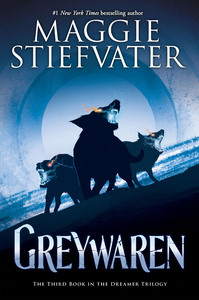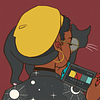Take a photo of a barcode or cover
adventurous
mysterious
tense
medium-paced
Plot or Character Driven:
Character
Strong character development:
Complicated
Loveable characters:
Complicated
Diverse cast of characters:
Yes
Flaws of characters a main focus:
Complicated
medium-paced
Plot or Character Driven:
A mix
Strong character development:
Yes
Loveable characters:
Yes
Diverse cast of characters:
Yes
Flaws of characters a main focus:
Complicated
adventurous
dark
emotional
mysterious
medium-paced
Plot or Character Driven:
A mix
Strong character development:
Yes
Loveable characters:
Yes
Diverse cast of characters:
Yes
Flaws of characters a main focus:
Yes
hopeful
reflective
medium-paced
Plot or Character Driven:
Plot
Strong character development:
Yes
Loveable characters:
Yes
Diverse cast of characters:
Complicated
Flaws of characters a main focus:
Yes
While the last chapter felt like the Henrietta hug I was hoping for certain sections left me wanting. Nevertheless thankful for this series and universe and ending. Stunning conclusion for the brothers lynch, and the introduction, art, and arc of Jordan Hennessy and Hennessy Jordan was perfect not only in content but in its addition to the universe. I’ve never loved a second series more. (why didn’t blue say ANYTHING though)
adventurous
emotional
mysterious
medium-paced
Plot or Character Driven:
A mix
Strong character development:
Yes
Loveable characters:
Yes
Diverse cast of characters:
Yes
Flaws of characters a main focus:
Yes
A fantastic ending to a fantastic trilogy, and the fantastic world of Raven Cycle that I will always, always love.
adventurous
dark
emotional
mysterious
tense
slow-paced
Plot or Character Driven:
Character
Strong character development:
Complicated
Loveable characters:
Complicated
Diverse cast of characters:
Yes
Flaws of characters a main focus:
N/A







